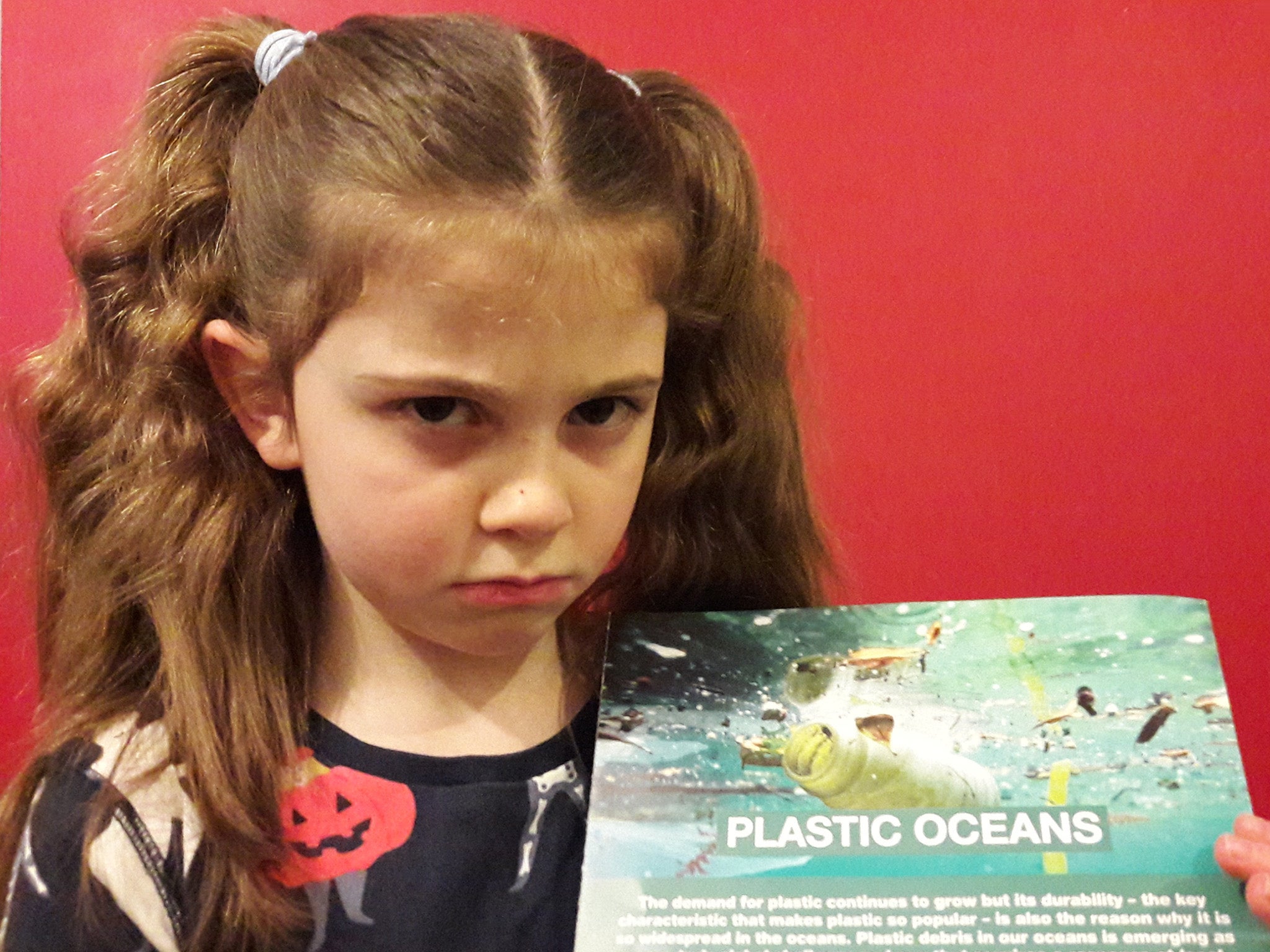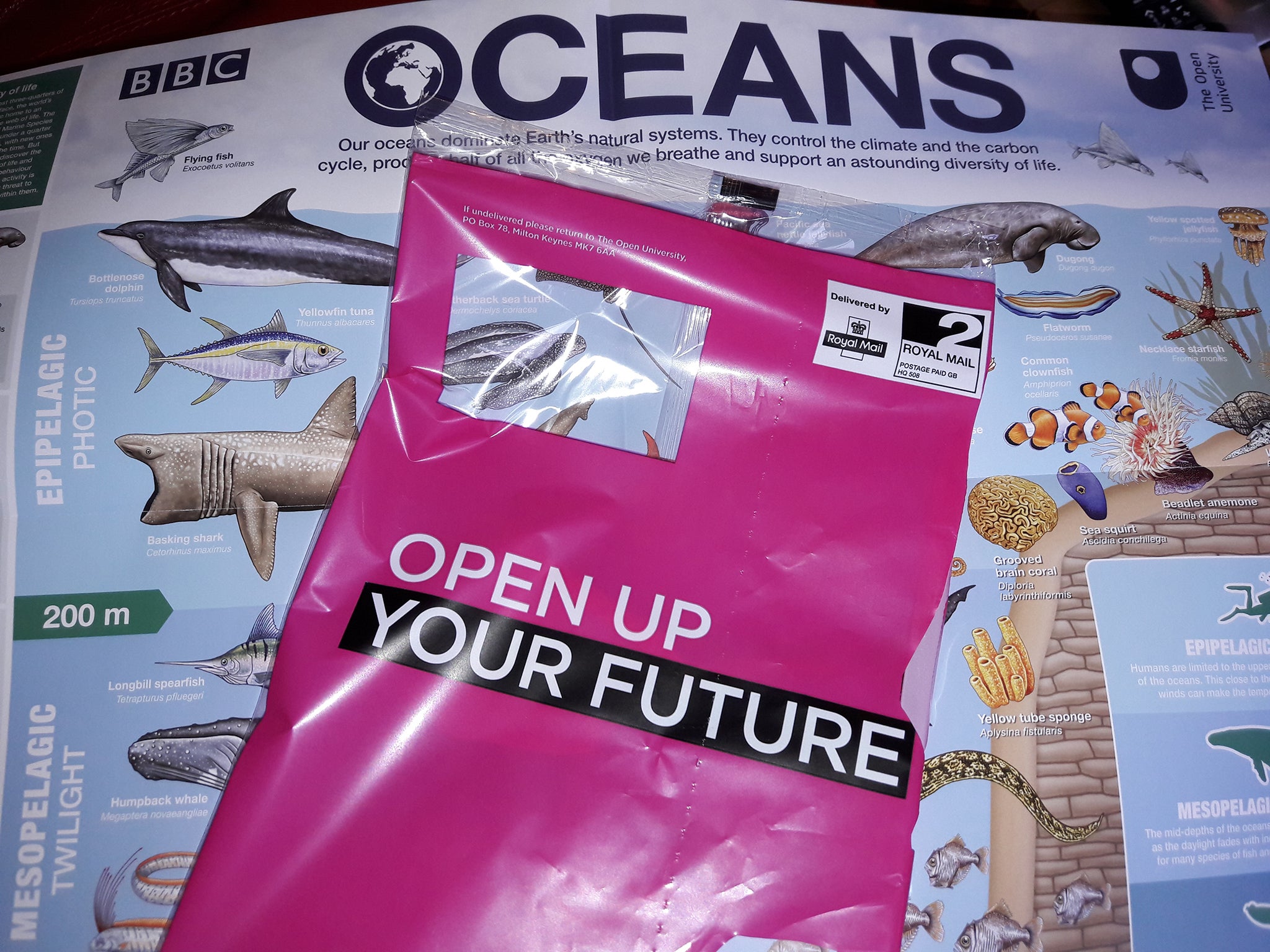BBC Blue Planet viewers receive posters warning of dangers of ocean plastic... wrapped in plastic
Exclusive: ‘If there’s one thing you’d think would come in a paper envelope it would be that’

Your support helps us to tell the story
From reproductive rights to climate change to Big Tech, The Independent is on the ground when the story is developing. Whether it's investigating the financials of Elon Musk's pro-Trump PAC or producing our latest documentary, 'The A Word', which shines a light on the American women fighting for reproductive rights, we know how important it is to parse out the facts from the messaging.
At such a critical moment in US history, we need reporters on the ground. Your donation allows us to keep sending journalists to speak to both sides of the story.
The Independent is trusted by Americans across the entire political spectrum. And unlike many other quality news outlets, we choose not to lock Americans out of our reporting and analysis with paywalls. We believe quality journalism should be available to everyone, paid for by those who can afford it.
Your support makes all the difference.Blue Planet 2 fans have vented anger and disbelief after receiving show-themed posters warning about the dangers of ocean plastic that were themselves covered in plastic packaging.
The “Oceans” poster, an accompaniment to the hugely popular nature documentary series, warns readers about the “fatal” effects of plastics and the “global challenge” it has triggered.
Jennifer Burgess, from Cambridgeshire, told The Independent she ordered the poster online for her seven-year-old daughter, Izzy, and was dismayed to find it delivered wrapped in clear plastic.
“It just made me roll my eyes. If there’s one thing you’d think would come in a paper envelope it would be that, given how heavily the Blue Planet series focused on the plastic problem,” she said.
In 2015, global plastic production exceeded 320 million metric tons, something the poster highlighted.

By mid-century, if nothing is done to check its production it is estimated there will be more plastic in our oceans than fish.
Much of the growth comes from the increased use of plastic packaging, which now accounts for 40 per cent of non-fibre plastic, according to a study in the journal Science Advances.
David Smith, Ms Burgess’ father and a former science teacher, branded the move an “own goal” by the BBC and the Open University, which produced and distributed the poster.
“I think the BBC and Open University missed an opportunity to reinforce the main message that Sir David Attenborough and the programme producers wanted to get over to world audiences for this series,” he said.
He added: “I wonder if he knows that the posters are being sent out in plastic envelopes?”
People who received the poster took to social media to express their frustration over its plastic packaging, including one user who branded the decision “unbelievable”.
Dr Chris Tuckett, a director at Marine Conservation Society, said although Blue Planet had done a “huge amount” to raise awareness, plastic use had “become so omnipresent we are using it as the default almost without noticing”.
Up to 12 million tons of plastic goes into the oceans every year, and it is estimated our seas now contain around 51 trillion microplastic particles – 500 times more than all the stars in our galaxy.
This pollution is harming more than 600 species worldwide amid what many now regard as the sixth mass extinction of life on Earth.
A spokesperson for The Open University told The Independent: “We use 100 per cent FSC-approved paper for our print offerings, and recyclable plastic envelopes for distribution.”
The BBC declined to comment.
Join our commenting forum
Join thought-provoking conversations, follow other Independent readers and see their replies
Comments